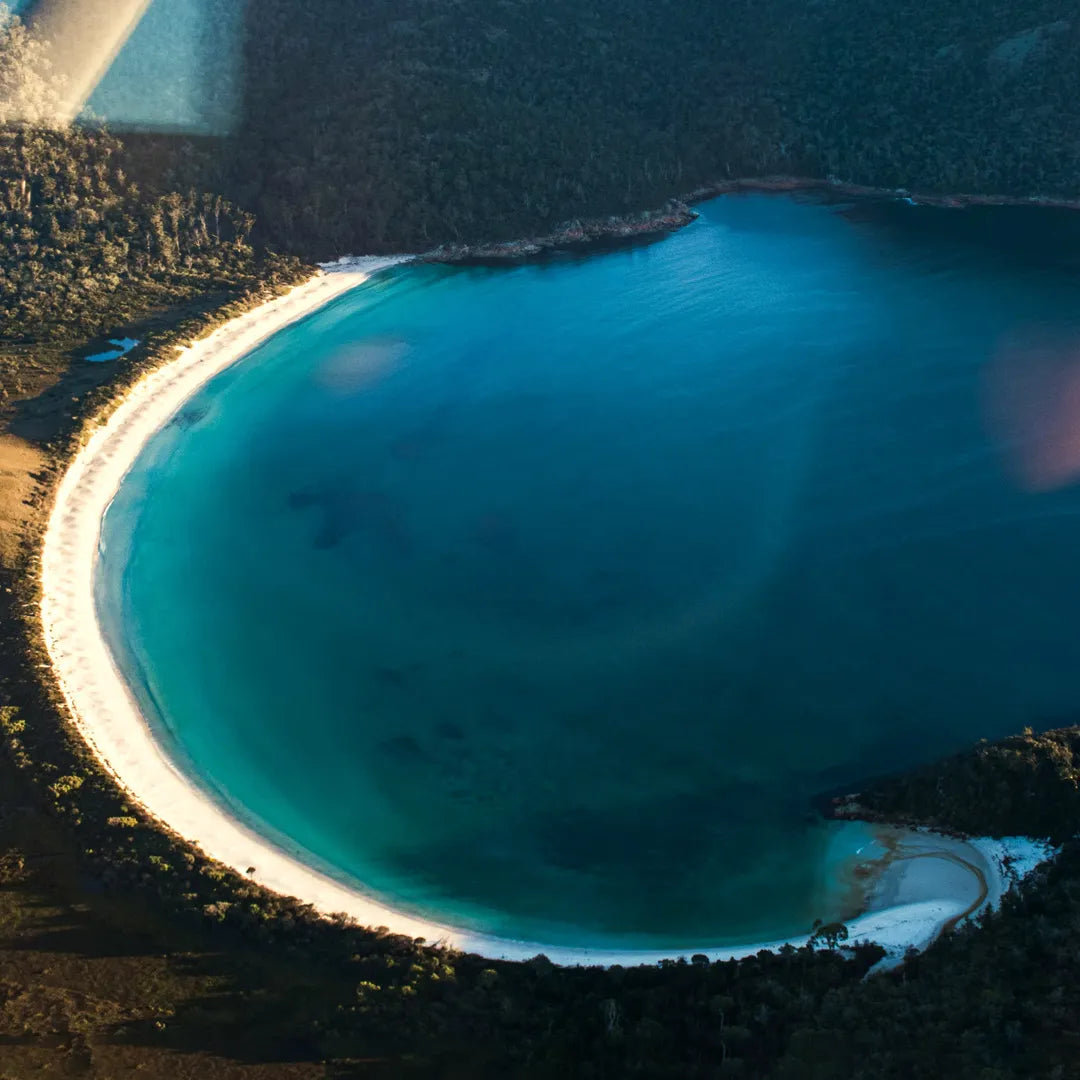At the southernmost tip of the continent lies Tasmania, the world's forgotten land. Tasmania is Australia's only island state and is known as the "end of the world". The glistening lakes, the mountains, the rolling hills, the steep and sweeping coast ...... Here, nature rules.
The original inhabitants of Tasmania were almost in sync with the outside world, but in the complete isolation of the geographic environment, they have been wandering for generations, living naked all year round, and have not progressed in tens of thousands of years of time evolution, thinking was stifled by the chronic, and there was one of the only cases of cultural regression in the history of mankind, which anthropologists call the "Tasmanian Island Effect". With the landing of the British colonizers, the last of the islanders died out, leaving behind a colonial cultural heritage and endless natural treasures to ponder.
Tasmania is located in the south of the Australian mainland and consists of more than 300 islands. It is the only island state among the six states of Australia and is also the smallest state of Australia, which is known as the "heart of the world" because of its heart-shaped view from the air.

The island state known as the "Natural State" is known for many things - the "Island of Apples", the "Holiday State" - but more than that, the sentimental title of "The End of the World" seems to fit it all. The end of the world" seems to be a more appropriate term for everything.
During the Ice Age, Tasmania was joined to the Australian continent and some primitive people were able to come and flourish here. After the end of the Ice Age, the sea rose and Tasmania became an isolated island, retaining much of its original flora and fauna, and because of this Tasmanian culture was isolated and almost stagnant in its progress, and more than 10,000 years of survival on a deserted island has made the indigenous people of Tasmania worlds away from the rest of the continent's aboriginal people and has become the most isolated group in the modern history of the planet.
 Aboriginal peoples, who initially arrived almost in step with outside civilization, were chronically stifled in their total geographic isolation, in one of the only instances of cultural regression in the history of mankind, which anthropologists have called the "Tasmanian effect".
Aboriginal peoples, who initially arrived almost in step with outside civilization, were chronically stifled in their total geographic isolation, in one of the only instances of cultural regression in the history of mankind, which anthropologists have called the "Tasmanian effect".
The original Tasmanians were, as sociologist George Mudac described them, "naïve and visionless children of nature", discovered by the Dutch navigator Tasman in 1642, and again in 1772 by a French expedition led by the Frenchman Frislie. During the British colonization, the Tasmanian people died out and the last original Tasmanian died in 1905.

The victory of civilization over barbarism, like so many other chapters, is one of the great tragedies of human history, and one that has not been seen since the colonial era. What remains unchanged today is the natural environment and the unexplored natural areas of the island, 40% of which are officially classified as National Parks, Nature Reserves or World Heritage Sites.

World Heritage-listed Freycinet National Park is one of Australia's oldest and most beautiful nature reserves. The star of this picturesque peninsula is the perfect curve of Wineglass Bay and the azure sea, with striking pink granite cliffs rising from the sea at sunrise and sunset.

Freycinet National Park is part of the Tasmanian Wilderness, a dual World Heritage Site, and the famous Wineglass Bay is located within the National Park, where clear blue-green waters wash over the east coast, and where, from June to September each year, people can explore Great Oyster Bay opposite Freycinet for southern right and humpback whales, which migrate north along the Tasmanian They migrate north along the Tasmanian coast between May and July and south between September and November.
 The best way to have fun in this area is to take a one-of-a-kind Australia's Best 5-Star Raw Seafood Cruise, bring a hungry stomach and your exclusive captain/diver/chef/waiter will jump straight down the road into the water to catch you the freshest sea urchins, huge lobsters and abalones bigger than your face and cook them on the spot.
The best way to have fun in this area is to take a one-of-a-kind Australia's Best 5-Star Raw Seafood Cruise, bring a hungry stomach and your exclusive captain/diver/chef/waiter will jump straight down the road into the water to catch you the freshest sea urchins, huge lobsters and abalones bigger than your face and cook them on the spot.































